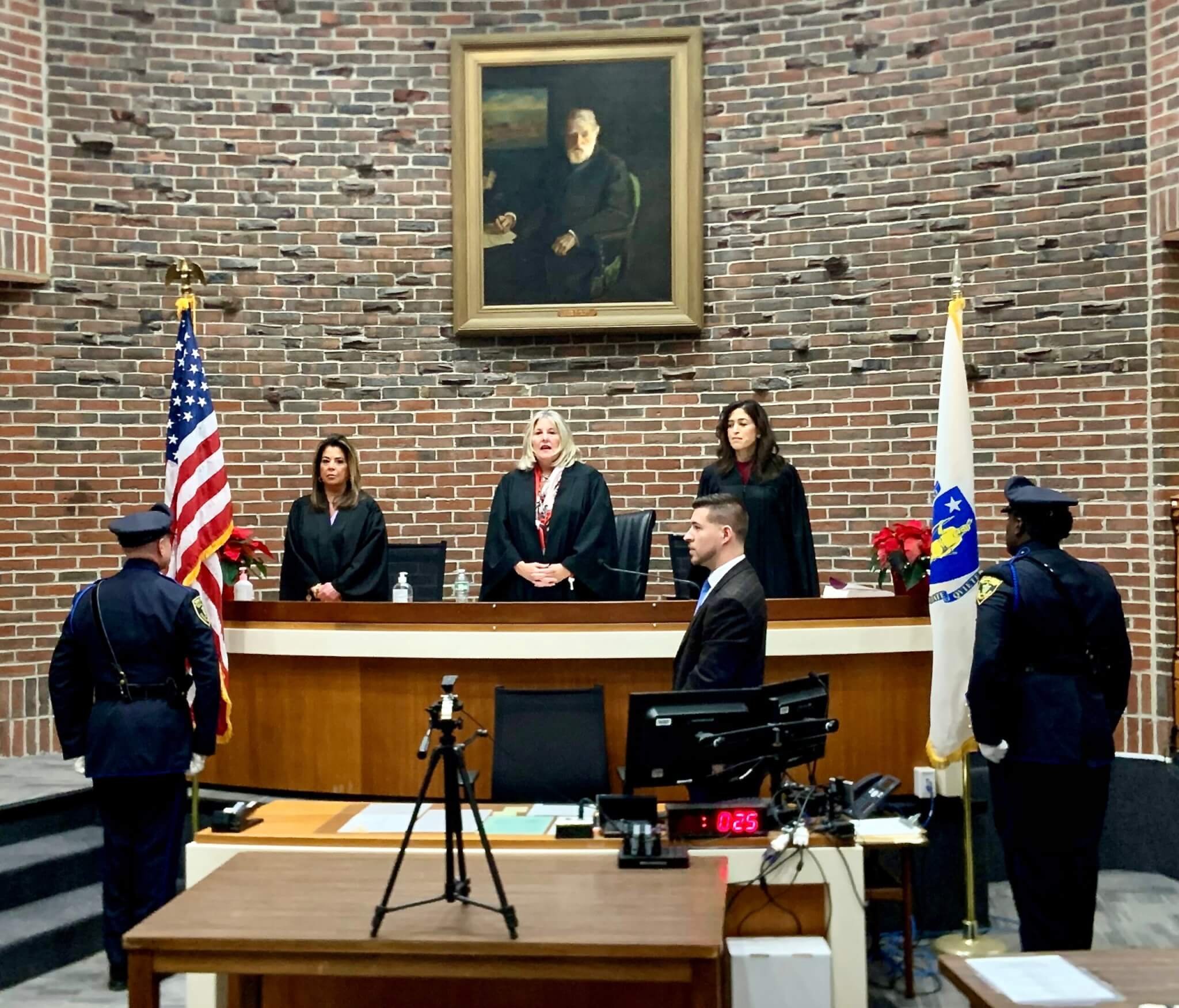A new mental health recovery session at Concord District Court aims to get people the help they need to get healthy and stay out of trouble — and to keep the public safer when they re-enter society.
Simply put, the court “is really an alternative for those who may be facing incarceration, but may [also be] suffering from mental health issues and could benefit from treatment,” Concord Chief Probation Officer Kevin Meaney said.
“I can’t think [of] a better time to have this started than right now,” he told a gathering of law enforcement, legal and social services officials at the District Court building last week — a launch Presiding Justice Lynn Brendemuehl called a “recognition of the substantial issues which face our community, our courts, and our world today.”
It’s clear, Meaney said, “there’s a lot of people struggling out there, and people need help. And I think a lot of the problem that we have with mental health is the stigma that’s attached to it. [People] are ashamed, [and] they don’t want to admit that they have mental health issues.”
He called the new court “an added tool [in] the criminal justice system to get these people the help they need, [to] get them evaluated and get them into treatment.”

Participants have to fulfill obligations such as attending scheduled court sessions and mental health or substance abuse treatment, staying free of alcohol and illegal drugs, and taking prescribed medications.
People who follow the rules may avoid incarceration and have fees waived. For those on pre-trial probation, it’s a chance to have the case dismissed and avoid a criminal conviction on their record.
Those who break the rules may have to undergo more frequent urine tests, be ordered into an inpatient treatment program, have their probation time extended, or even get locked up.
Probation Officer Christopher Chappell said the court would coordinate services “among treatment advisors, courts, attorneys, probation officers [and] houses of correction” for people who get into the criminal justice system with mental health issues.
“Together, I hope we can find the answers,” Chappell said, “because every single person is going to come up with unique problems, whether that be housing, whether that be transportation, whether that be getting to services [or] use of technology [if] they’re doing telehealth.”
He underscored that participation is voluntary and the length of the program — at least 12 months, and up to 24 — can vary depending on each person’s progress under treatment.
“This is not ‘we’re shoving you into this program and you’re gonna have to do this.’ That’s not what we’re looking for,” Chappell said. “We don’t want people who have their back up against the wall. In the end, if they’re not committed to it, they’re not going to get anything out of it.”
Margaret Johnson, a clinical coordinator who will work on the new court’s team, said she hoped the program would “improve access to quality mental health care [and] improve support and connections with family, as well as enhancing each participant’s overall quality of life and avoidance of future legal involvement.”
And Michael Coelho, a Massachusetts Probation Service deputy commissioner, said “the beauty of the treatment court model” is that ultimately, “it’s a bunch of people coming together to talk about a person and what they need and how do we help them — and that’s really impressive work and it’s humanizing and it’s responsible.”
The court’s first session is December 20.
State Rep. Carmine Gentile, who attended the ceremony, said he meets regularly with Carol Mici, commissioner of the Massachusetts Department of Corrections, “to look at the situation in the prisons, [and] more than half the people there have mental health issues, so this is a much-needed program — [and] it’ll pay for itself financially, because it’s really meeting a problem that we have that otherwise probably wouldn’t be met.”
According to the National Alliance on Mental Illness, about 1.16 million Massachusetts adults had a mental health condition and 260,000 had a serious mental illness as of early 2021.






